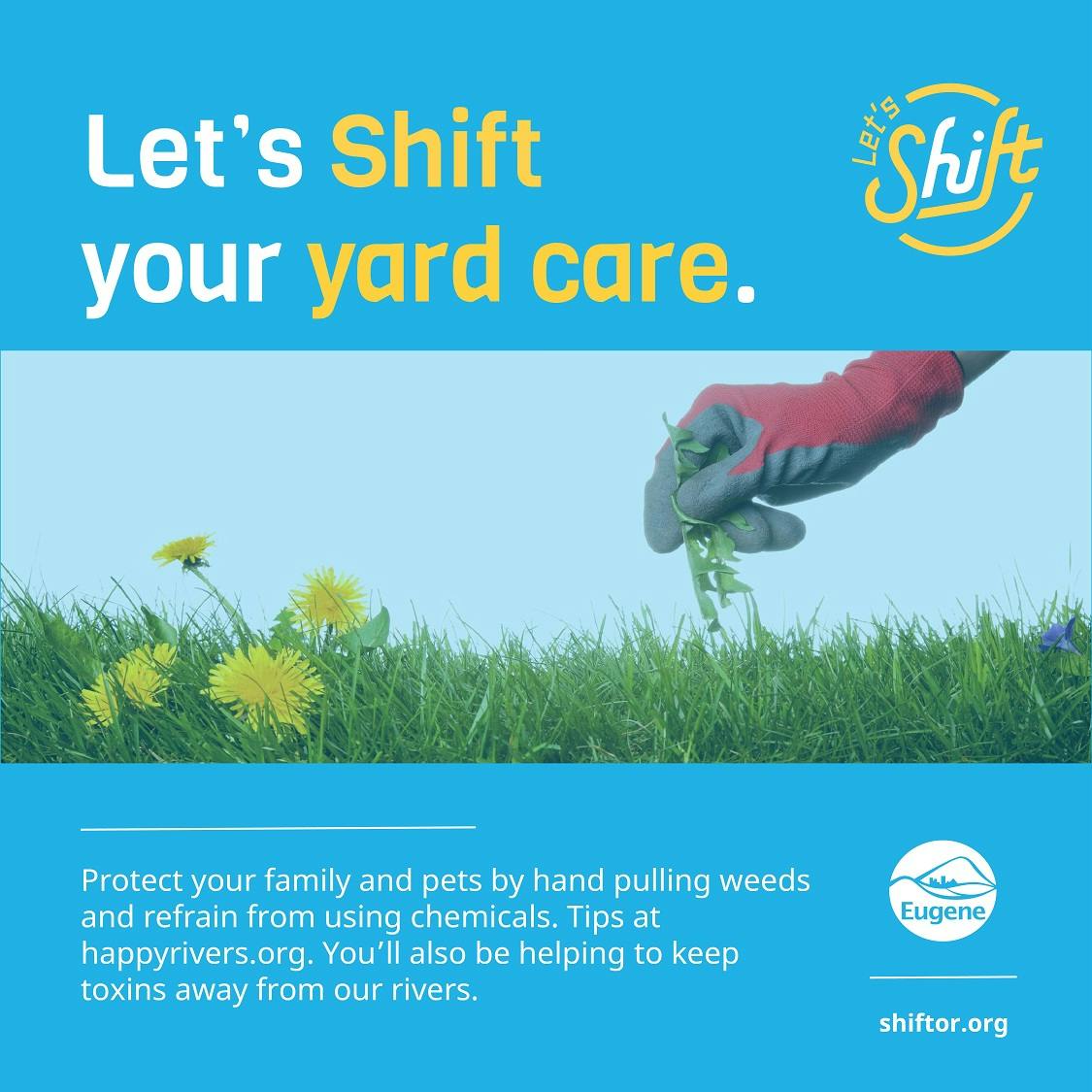The Shift Campaign
The SHIFT Campaign has concluded.

The Shift Campaign is an umbrella of projects from the City of Eugene and its Eugene Climate Collaborative Partners. These projects highlight ways people can make small changes in their daily habits to make a big difference in achieving our climate recovery goals. The Campaign will cover a wide range of topics from shifting your ride, to eating a plant-based meal, to buying used. These actions will not only lead us towards more sustainable living but may even save us money, increase our wellness or connect us more with our community.
The Shift Campaign came about to provide individuals and households a way to learn about how to reduce greenhouse gas (GHG) emissions in every day life. While the Climate Recovery Ordinance (CRO) sets an aggressive target of lowering Eugene's GHG emissions to 350 parts per million (ppm) by 2100, the CAP2.0 shows us that to stay on track to meet that target, our community needs to reduce GHG emissions by 790,000 metric tons of carbon dioxide equivalent, or MT CO2e, by 2030. That's a lot! It’s going to take everyone to reach that goal.
Ready to do your part? Let's go!
How have you lowered your GHG emissions? Share below so we can all grow!
While the City and its partners are doing all we can to guide our community towards producing less greenhouse gas (GHG) emissions, it will take all of us to get to a level that is safer for our atmosphere. You don't need to purchase an electric vehicle or downsize your home to accomplish this, either. Small changes to our everyday routines can lead to big impacts as we work to consume less, consume differently and live more consciously. Examples of small changes include:
- Shift where you shop Buying from your neighborhood store not only reduces on the amount of large freight travel importing goods, but it also puts money in your neighbor's pocket as they feed their family and invest in your community.
- Shift your garbage Avoid producing methane (a potent GHG) by sending food waste to the landfill and use your yard-debris bin to compost your waste. This compost will be used locally to enrich our soil and keep Eugene green.
- Shift your ride Try replacing one car trip a week with a bike or bus ride, and see how it goes. As you grow comfortable with this trip, experiment with other errands you can replace with non-car travel.
- Shift your water Using cold water to wash your clothes is an easy and quick way to save emissions that come from electricity and natural gas heating water. Not only is washing in cold water as hygienic as hot water, it will also save you money on your utilities.
What ways are you working to produce less GHG's?





